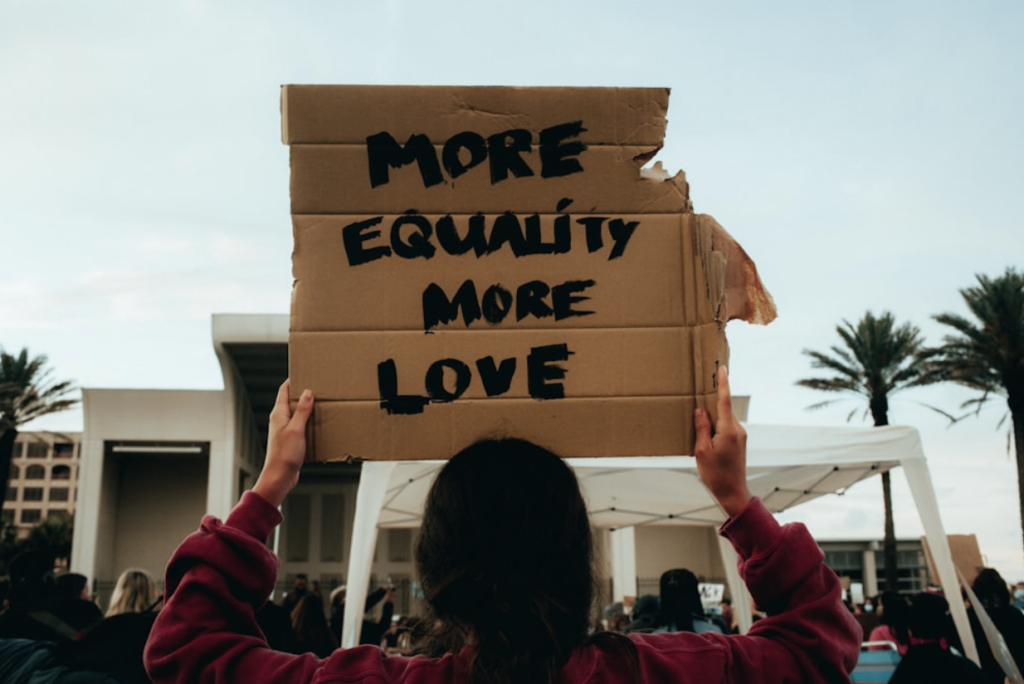
There are 8 separate and distinct racial demographics in New York alone, for the city’s total cumulative population of more than 8 million people. 17.2% of the city’s population (1,376,000) live in poverty. The New York unemployment rate is 4.90%. The city is one of the most famous in the world, its sprawling metropolitan streets littered with the glamor of the big city. But as with all things, there is a mirror to the glitz and glitter of the home of Broadway, the Statue of Liberty, the Empire State Building, Central Park, and Times Square; one of poverty, crime, and inequality.
Students of any online MSW programs in New York will understand that the only way to solve a problem is to admit that there is one. The problems facing New York aren’t anything that we cannot solve, and they certainly aren’t specific to New York. They are problems facing the entire world – but we can solve them. We just need to be brave enough to advocate for social justice, making our city, and maybe one day the world a better place one cause at a time.
But do you need to be a social worker to advocate for social change? We don’t think so.
Knowing What to Advocate For
Social advocacy can be hard to engage in because there are just so many issues, and all of them are usually dedicated to one or two particular demographics. The world is populated by 8 billion people, and there is a long and troubled history between every single nation on the globe. As a result, there are countless issues, and endless causes that need people to talk about them.
The first step in changing the world is the acquisition of knowledge. There are several major social issues, including gender inequality, el marginalization of LGBTQI+ people, racial intolerance, y many more.
The first step to advocating is to study these issues, understand their history and dynamic, and understand if you are someone suffering because of the issue, or unwittingly benefitting from/contributing to it. Once you have a solid understanding of the facts, you will then be able to formulate a stance based on your values that will allow you to better advocate for social justice.
Vote, For Everything
The thing about social justice is that it demands people to speak up. There are millions of voices for every cause, but lasting change can only happen at the hands of those in power. Understanding how your nation divides its political power is crucial to an understanding of your country’s engagement in human rights and social justice.
In countries such as the USA that practice democracy, the people’s votes determine the political leader of the nation, and that leader should live up to the views of the political party they represent thereby representing the desires of the people who voted for them. Voting is the most important thing that people can do to effect change.

Keep Up With News
There is a plethora of news media, and with the freedom of the internet, it’s entirely plausible to examine the news sources of the entire world, allowing you to gain global perspectives on various issues and remain informed about the causes you follow.
However, the nature of journalism nowadays means that consumers have to have a degree of critical thought. The nature of the internet has opened up avenues for conspiracists and the delusional to spread their falsehoods and misinformation. Fortunately, there are many fact checking websites out there and the sheer amount of resources on the net allows consumers to compare sources and confirm the validity of what they hear.
Despite this, there is still a shocking prevalence of people who still refuse to do their due diligence, even with the most out-there conspiracies. It is important that when pursuing social justice, you listen to experts rather than the grapevine – and validate any claims you hear.
Ensure This Isn’t About You
There is a plague in the social justice community of people taking on causes for clout, fame, sympathy or praise. It is normal to feel good when doing good things, there is nothing wrong with that. When it becomes wrong, people latch onto issues that truly mean nothing to them.
For example the phenomenon of “queerbaiting,” the practise of celebrities or companies hinting at or skirting around LGBTQI+ identities, without actually committing or saying outright whether they are or not. This allows them to access the LGBTQI+ audience, and increase their exposure, or manipulate their publicity favourably.
Advocating for social issues is a great way to help improve your community and to make the lives of marginalized communities easier and less drought, and it also brings a true sense of fulfillment.

Be Prepared To Stand Up
When you start advocating for social justice, you are going to eventually run into people who think you’re misguided. You’ll be called names, you’ll be insulted, and you’ll be told that you’re mistaken. But standing for social justice has never been easy. Every major social shift towards progress and the advancement of society came because a person or people stood against something that was unjust or cruel.
It has been the people who take the brave stance of standing against the status quo to force the world to face modernity. Some people can’t handle that. They think that the way things are is the way things should be, and the way things always should be. They believe that progress and the development of society ruin their world and weaken their culture. However, this means that they also think that the world is better when certain people suffer.
Whatever you choose to stand for, you will eventually be faced with backlash about it. If you decide to use your voice to demand social justice for those living without it, be prepared to use it to also defend yourself.













Discussion about this post